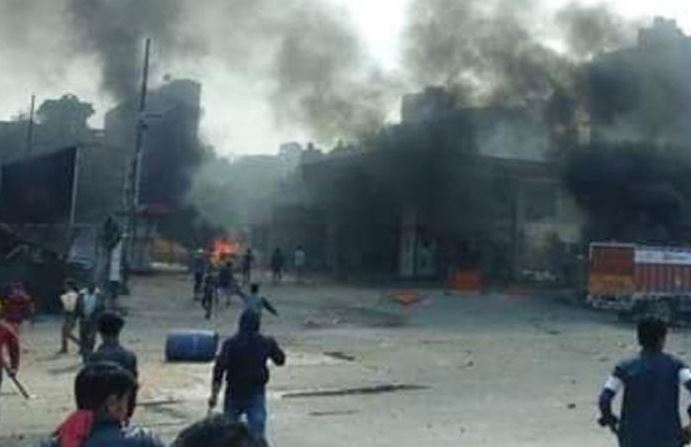New Delhi: In a strong advisory to private television channels, the government Saturday said certain debates on the coverage of the Ukraine-Russia conflict and the Delhi riots had provocative and socially unacceptable language, and it took exception to headlines such as ‘Parmanu (nuclear) Putin’ and ‘Ali, Bali aur Khalbali (unrest)’.
While the government found television news channels making “false claims” and “frequently misquoting” international agencies while reporting on the Ukraine conflict, it took objection to the reportage on “incidents” in northwest Delhi, contending that channels had given communal colour to the actions of authority.
It also said that certain debates on television channels on the Delhi violence had unparliamentary, provocative and socially unacceptable language.
“Having regard to the above, the government expresses serious concern about the manner in which the television channels have gone about their operations in the matter of transmitting content…,” read the advisory issued by the Information and Broadcasting Ministry to self-regulating bodies of television channels.
It also “strongly advised” them to immediately refrain from publishing and transmitting any content which is violative of the aforementioned provisions of The Cable Television Networks (Regulation) Act, 1995, and the rules thereunder.
The government cited specific instances of “hyberbolic” statements by news anchors and “scandalous headlines/taglines” while reporting on the Ukraine-Russia conflict and disrupting the investigation process into the incidents in northwest Delhi by airing unverified CCTV footage.
Section 6 of the Programme Code under the Act states that “no programme should be carried in the cable service which – offends against good taste or decency; contains criticism of friendly countries, contains attack on religions or communities or visuals or words contemptuous of religious groups or which promote communal attitudes; contains anything, obscene, defamatory, deliberate, false and suggestive innuendos and half truths”.
The advisory said that while reporting on the Russia-Ukraine conflict it has been observed that channels have been making false claims and frequently misquoting international agencies or actors, and using “scandalous headlines or taglines” completely unrelated to the news.
The advisory also cited instances use of headlines or taglines such as ‘Parmanu Putin se pareshan Zelenski (Zelenski worried about nuclear Putin), ‘Parmanu action ki chinta se Zelenski ko depression’ (Zelenski goes into depression over nuclear action), and making of “unverified claims misquoting” international agencies that the third world war has already started.
“One channel aired fabricated pictures claiming to be the proof of the upcoming nuclear attack on Ukraine. This completely speculative news story seems to be intending to misguide the viewers and arouse psychological upheavals inside them,” the advisory noted.
On the Delhi riots, the ministry took objection to a news channel repeatedly carrying a video clip of a man belonging to a specific community carrying a sword, and claims made by another that the violence targeting the religious procession was pre-planned.
The ministry has also cautioned private TV channels against broadcasting debates having unparliamentary, provocative and socially unacceptable language, communal remarks and derogatory references which may have a negative psychological impact on viewers and may also incite communal disharmony and disturb the peace at large.
PTI
